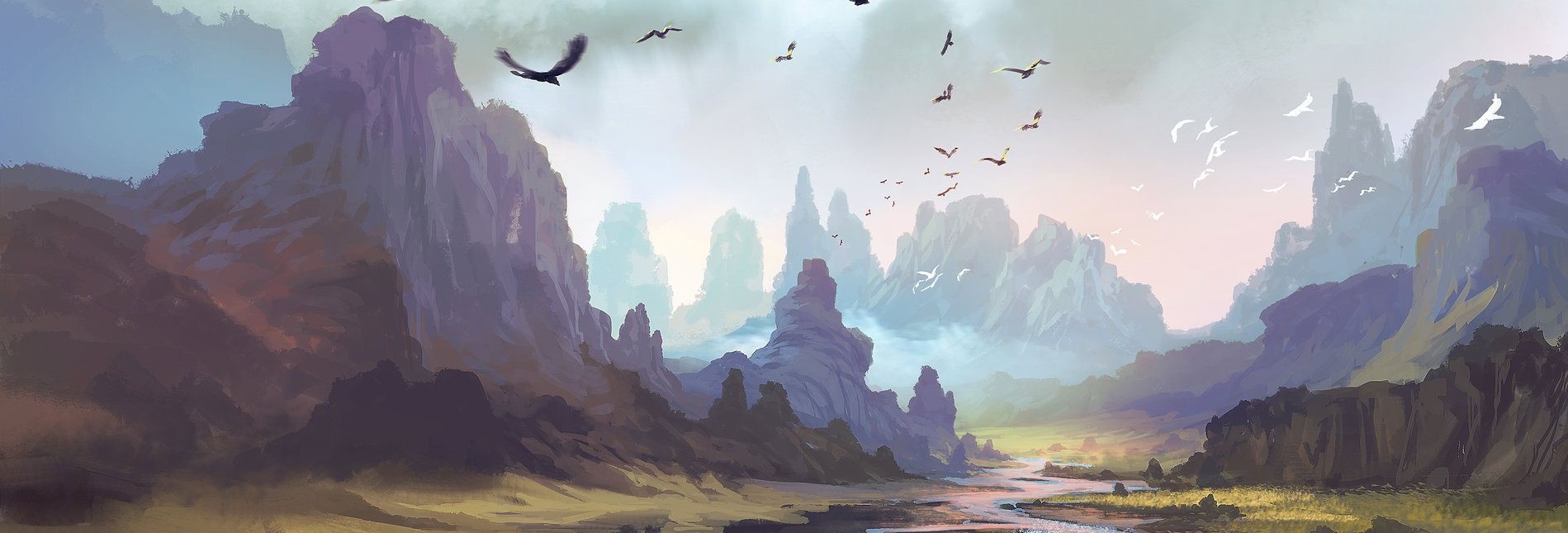The old Gods
This was the original religion of all humans, it revolves around the natural spirits of the plants and animals. They have a spirit for everything, and those spirits are often invoked to help bring favor.
Over the years this religion has evolved and changed among different people as they migrated around the world and moved to new environments. There are currently four distinct branches of faith.
The most common and well-known branch is the Dendorian branch, which is also closest to the original faith. They focus on nature and spirituality, being in balance with yourself and the elements in order to find inner peace.
The second branch is the Khellan branch, which has deified the spirits, and given them names, as they moved to a region where trees and green are a foreign concept. These people lean heavily on their shamans to guide them and tell them the will of the gods.
The third is the Aneira branch, which is in a lot of ways even more similar to the dendorian, although they gained a new aspect of faith, the veneration of ancestors, which is not something practiced by the other branches. They are the only people in the world who mummify their dead and keep them in crypts, rather than burying or cremating.
The fourth and rarest of the is the Yavinian branch, which is exclusively followed by the house Onifnechi, and their citizens, and some very old vampires.
It is the final remnant of what was once considered the primary branch of Human Paganism. It puts special emphasis on the moon, as a deity, unlike the other branches. it has also mostly left shamanism behind, focusing on people's individual relationships with the gods.
Shamanism
By nature, a shamanic faith, religious men and women who are thought to commune with the spirits and perform sacred rituals, these exact rituals may differ slightly, but the shamans are so conservative that in fact, they have changed very little over time, although some tribes may use other rituals to achieve different things.
Shamans are an independent faction, and each tribe has its own shamanic ring, which is autonomous, and seeks to aid and help their tribal chief when necessary. They often don't hold any real political power, but they are seen as powerful and wise by their people, and therefore their judgement is often respected. These shamans don't often fight in battles, but those that do, use magic and are named warlocks
In fact, all shamans are capable of magic, even if not all of them are warriors. Any shaman may take on an apprentice if they find a suitable candidate, and this must always be a person with magical potential, on top of that they must show an aptitude for the spiritual and mystical. No one can come to the shamans asking to be trained, only the shamans can choose someone.
Upon the completion of their training, which can take many years, a young shaman has to be inducted into the order of shamans and perform a graduation trial, the details of which are completely unknown to the outside world.
Because the shamans are so picky with their selection of new recruits, any tribe usually has around half a dozen shamans, a dozen for very large tribes.
Amongst each other, the shamans are all equal, although they have one representative who will represent the shamanic ring to the local chief. this representative is chosen by the shamans of the ring, and can be fired at any time, in order to choose a new one, although this never really happens.
It is said the shamans are the keepers of ancient knowledge that they keep for themselves, and share only with each other, and only with fully trained shamans.

Comments